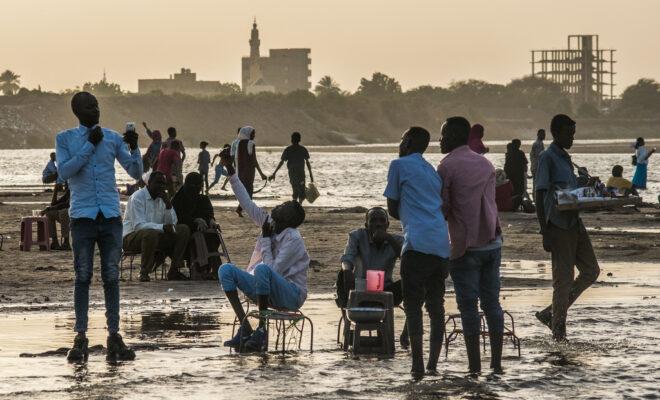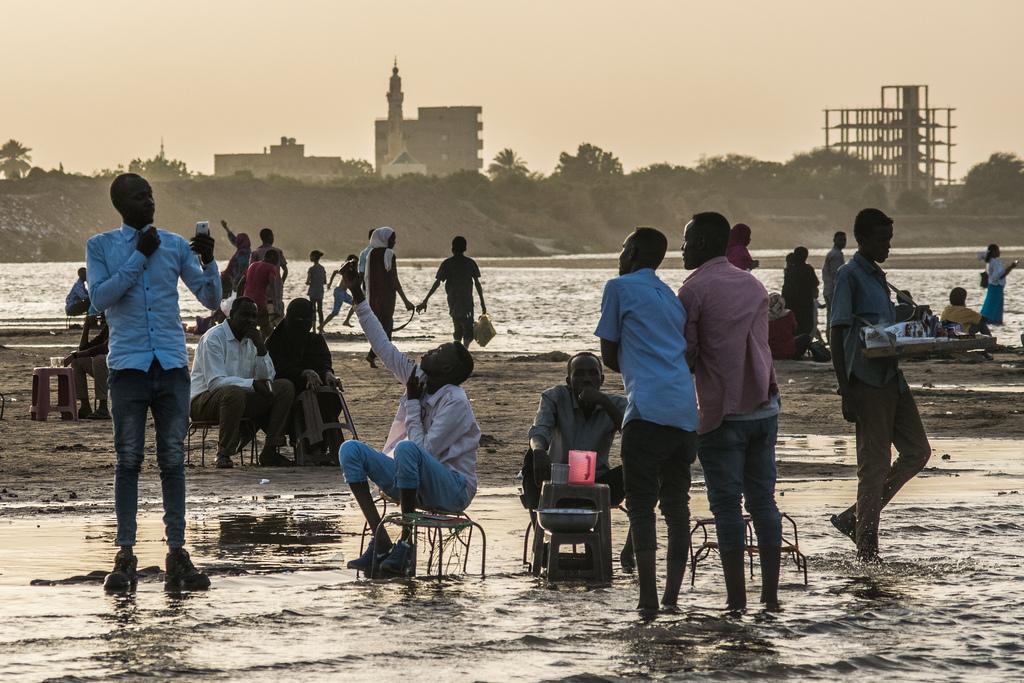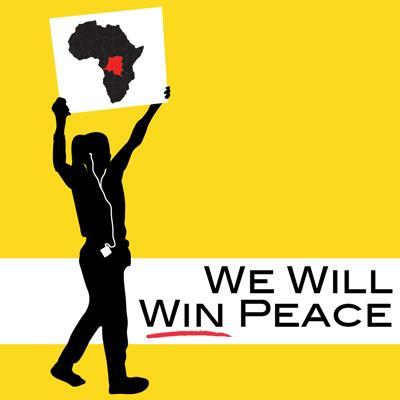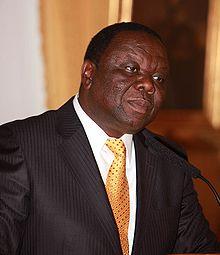Keep up with what’s going down in Africa


We’ve just revamped the Insiders Newsletter. To show it to you, we’re releasing this week’s for free! The newsletter is full of original content and goes out weekly to all paying subscribers. The subscription costs a bit of money, but that money goes into funding African Argument’s core coverage, which is (and always will be) free to all.
As part of the revamp, we’ve tightened up the structure of individual segments to ensure readers can sweep up the crucial details as easily as possible. And we’ve introduced two new regular segments. 1) Conflict Focus, which will cover the continent’s major wars and clashes; and 2) Health Corner, which will provide running coverage of important health and nutrition news. If the interest is high enough, we might expand these sections and break them out into their own newsletters, like we do with our election coverage in Election Watch.
If you have any feedback, questions or suggestions, contact us at [email protected].
To get the newsletter every week, SUBSCRIBE here for as little as $8.33 a month.
Here’s what’s in this week’s offering:
- The follow-up [where we give quick updates on issues previously covered]
- What everyone is talking about [examining a headline development]
- What we are talking about [examining an under-covered but crucial issue]
- Conflict Focus [the latest on a major conflict]
- Health Corner [highlighting an important health or nutrition development]
- Hear This Word! [a spotlight on gender]
- Report of the week [new research that caught our eye]
- What else? [the best articles from elsewhere]
Sudan protests continue
Protests against the regime of President Omar Al Bashir continued unabated, despite a harsh crackdown that so far has demanded the lives of more than 40 protesters. Addressing thousands of supporters during a rally South of the capital Khartoum, Al Bashir blamed rebels from Darfur and outside powers for the protest and said that people among the protesters are responsible for the killings, not his security forces. With unions, doctors, teacher and some clerics now pressuring Al Bashir to step down and no open support from other Arab governments forthcoming, the President’s position looks increasingly tenuous.
- Sudan police clash with demonstrators in fresh protests (Voice of America/AP)
- Sudan’s al-Bashir accuses infiltrators of killing protesters (Sudan Tribune)
- Sudan police confront protesters as Bashir rejects accusations (Daily Nation/AFP)
- Sudan president defiant as deadly protests continue (BBC)
- Opinion: Where are George Clooney and co now that Sudan needs them? (The Guardian)
- Video: Sudan: children and doctors caught up in ‘unbridled killing spree’ (Amnesty International)
- Context: Sudan’s inflation rise to 72,94% in December (Sudan Tribune)
Discuss with @PeterDoerrie on Twitter
And the protests in Zimbabwe grow worse
Security forces have expanded a brutal crackdown in the wake of civilian protests over rising consumer costs in Zimbabwe. They have also imposed a “total internet shutdown.” And the president’s office warned protestors that it was only a taste of what was to come.
At least 12 people have been killed and dozens wounded since the protests started last week after a hike in fuel prices, which were spurred by a shortage of foreign exchange in the country. President Emmerson Mnangagwa cut short a foreign trip to raise forex and returned to Zimbabwe promising he will stabilise the situation.
- Recommended: Vicious crackdown in Zimbabwe (Mail & Guardian)
- Zimbabwe in ‘total internet shutdown’ amid deadly crackdown (Associated Press)
- Zimbabwe’s internet blackout shows how powerless major telcos are against governments (Quartz Africa)
- Mnangagwa cuts short foreign tour (The South African)
- Zimbabwe descends into chaos — again (Associated Press)
- Zimbabwe crackdown a taste of things to come, president’s spokesman warns (Reuters)
Discuss with @_andrew_green on Twitter
What everyone is talking about:
Gbagbo going free?
The essentials: Former Ivory Coast President Laurent Gbagbo is not yet a free man, but he is closer than he was a week ago. That’s when the International Criminal Court ruled he had no case to answer for charges related to post-election violence that took place in 2010 and 2011 after his failed bid to stay in power. More than 3,000 people were killed. Gbagbo and his co-defendant, former Youth Minister Charles Ble Goude, are being held until an appeals court can consider last week’s ruling.
The context: Gbagbo and Goude were charged with four counts of crimes against humanity for murders, rapes and other inhumane acts that were committed in the wake of the disputed 2010 election. Though the full verdict has not yet been released, a majority of the three-judge panel concluded that the prosecutor had not presented enough evidence to hold Gbabgo and Goude accountable. They also concluded there was no evidence of a plan to keep Gbabgo in power that included a policy of attacking the civilian population.
It has also opened up an interesting debate on the “no case to answer” standard at the ICC.
The good: For Gbagbo, things must be looking plenty rosy. Aside from a likely release from detention after being held for seven years, the decision might have paved the way for his return to Ivorian politics. The country has a presidential election next year and there is no clear leader in the race. President Alassane Ouattara is barred from seeking a third term and, even if he does, his coalition has fallen apart.
The bad: This was yet another high-profile blow to the ICC prosecutor’s office. The prosecutor saw the conviction of Congolese warlord-turned-politician Jean-Pierre Bemba overturned last year and attempts to try Kenya’s president and vice president fell apart. Critics are already openly discussing the lessons this offers in thinking about the successor for Prosecutor Fatou Bensouda, even though she still has two years left in her term.
- Primary source: ICC announcement of acquittal
- “No Case to Answer” debate: No Case to Answer? Show Me the (Standard of) Proof! | Did the Gbagbo Majority Get the No Case to Answer Standard Wrong? (OpinioJuris)
- Ivory Coast ex-President Gbagbo’s release delayed until February (Al Jazeera)
- What will the return of former Ivory Coast President Laurent Gbagbo mean for the country’s 2020 elections? (CNBC-Africa)
- Ex-Ivory Coast president acquitted at the ICC (The Guardian)
Discuss with @_andrew_green on Twitter
Burkina Faso’s government resigns
The essentials: Prime Minister Paul Kaba Thieba resigned alongside his entire cabinet, without an official explanation given. The resignation was accepted in a statement by President Roch Marc Christian Kabore, who appointed Christophe Joseph Marie Dabire as Thieba’s successor. Dabire was a minister for health from 1992 to 1997 and more recently the Commissioner for regional commerce and cooperation of the West African Economic and Monetary Union.
The context: Thieba had come under criticism for a deteriorating security situation as militant groups extended their presence and networks from Mali into Burkina Faso for the past years. After a first high profile attack in the capital Ouagadougou in 2016, militants carried out roughly 200 attacks in 2018, displacing 54,000 people, killing scores of people and abducting several foreigners.
Burkina Faso’s authorities have clearly been overwhelmed by the developments, despite substantial French and US military and intelligence cooperation. Militants are taking advantage of an underdeveloped state presence in the country’s periphery, due to decades-long neglect under President Blaise Compaore, who stepped down amid protests in 2014 after 27 years in power.
The good: Thieba was chosen primarily because of his credentials as an economist, highlighting President Kabore’s desire to kickstart the economy after the 2014 revolution. The Prime Minister was probably ill-prepared for a fight against well-resourced and battle hardened islamists and had to deal with a security apparatus that was essentially beheaded during the events of 2014. Designating a new prime minister who is better prepared for this challenge could prove beneficial. Dabire’s credentials in regional cooperation are certainly relevant, as the fight against militants has to be seen in a cross-border context.
The bad: The reason that militants are able to establish their presence so freely throughout Burkina Faso is exactly the economic underdevelopment and absence of the state that Thieba was brought in to resolve. If his resignation is the beginning of an exclusive focus on security provision, the structural reasons for the crisis will strengthen.
The future: Burkina Faso can draw on substantial military support in the forms of special forces and intelligence from France and the US. But it will have to find answers to its problems of governance on its own terms. Dabire’s choice for the relevant ministries, as well a clearly articulated and realistic strategy to tackle the complex development and security crisis facing Burkina Faso, will be crucial.
- Burkina Faso’s prime minister and government resign (France 24)
- Burkina Faso : Christophe Dabiré remplace Paul Kaba Thiéba à la primature (leFaso.net)
- Burkina Faso : Christophe Dabiré nommé Premier ministre (Jeune Afrique)
- Announcement: President Kabore announces new Prime Minister on Twitter
- Essential Background: Insecurity in Southwestern Burkina Faso in the Context of an Expanding Insurgency (Acled Data)
Discuss with @PeterDoerrie on Twitter
A spotlight on Africa’s major armed conflicts
2018 has seen the escalation of several of the continent’s major armed conflicts. We don’t want to overwhelm this newsletter with too much bleak news. But at the same time, both the suffering that goes along with armed struggle, as well as opportunities for conflict resolution warrants constant reporting. Conflict focus will therefore become a fixed segment, covering one piece of essential conflict news every week.
We will concentrate on full-blown wars, usually defined as having resulted in 1,000 or more violent deaths in the past twelve months. By this definition, there are currently at least six major conflicts playing out on the continent, namely the Somali civil war, communal conflicts in Nigeria, the Islamist insurgency in the Sahel and Maghreb, the Boko Haram insurgency, the South Sudan civil war, and communal violence in Mali. Depending on the segmentation of the conflicts, ongoing violence in eastern DR Congo and Sudan’s various civil wars could be counted in that category as well, with violent confrontations in Sinai (Egypt), communal clashes in Ethiopia, and the Anglophone Crisis in Cameroon all being close to the threshold of 1,000 violent deaths.
While all conflicts have their individual root causes, some similarities are obvious: the irrelevance of borders where an ideology, common identity or grievance transcends nationalities; a weakness of the state, sometimes due to willful neglect and marginalisation that offers space for militant actors to thrive; and the enduring siren call of forceful repression, enabled and supported by international interventions. We are looking forward to covering all of this in Conflict focus.
Discuss with @PeterDoerrie on Twitter
Better treatment for a hidden disease
As part of our newsletter revamp, we’re also highlighting a continental health issue — be it an emerging intervention, a promising development or a new outbreak — each week. The idea is to highlight the complexity of the health systems on the continent, but also the contributions local researchers are making toward medical breakthroughs. Feel free to send any suggestions you have, whether its newly published research or a project you would like to see featured to [email protected].
This week we’re highlighting recent findings that point to a more effective treatment for patients with both HIV and visceral leishmaniasis — a disease caused by parasites that is almost always fatal if left untreated. There are an estimated 90,000 cases, mostly in the developing world, and 20,000-30,000 deaths each year.
An HIV co-infection worsens the symptoms and can accelerate mortality.
A combination therapy approach deployed in a study in Ethiopia showed high cure rates for patients who adhered to the full treatment. For patients who stuck with the treatment for 28 days, 67 percent were cured. That rate jumped to 88% when patients who were not initially cured went through a second round of treatment.
The findings could change treatment and, ultimately, save lives.
- Primary source: The trial results (PLOS Neglected Tropical Diseases)
- Combination therapy found to be more effective in treating patients with leishmaniasis and HIV (DNDi)
Discuss with @_andrew_green on Twitter
More than ONE
The campaigning and advocacy organisation ONE has announced its Women of the Year Awards. There are some incredible African laureates among the winners, including Ethiopia’s first female President Sahle-Work Zewde (@SahleWorkZewde), actress Danai Gurira (@DanaiGurira), physician and activist Dr. Marlene-Joannie Bewa (@BEWAJ), afrobeats artist Tiwa Savage (@TiwaSavage), and activists Abisoye Ajayi-Akinfolarin (@AbisoyeAjayi), Fridah Githuku (@Fridahgithuku) and Lola Omolola (@theLolaOmolola).
ONE seems to give special consideration to women who were involved with activism for the organisation in some way, but all of the laureates have incredible resumes and are well deserving of the accolades.
Discuss with @PeterDoerrie on Twitter
Human rights watchers
To ring in the new year, Human Rights Watch released its World Report 2019. The primary focus of this year’s edition was on efforts to push back against rising autocratic forces and the examples used were drawn primarily from places other than Africa. Aside from the continental push to force Congolese President Joseph Kabila to finally go through with national elections, the authors featured episodes in Malaysia and Armenia and talked about the increased importance bodies like the UN Human Rights Council have taken in highlighting atrocities.
But it’s easy to align some happenings in Africa with this narrative — including the ongoing protests in Sudan and Zimbabwe that we wrote about above.
And 23 of the continent’s countries came in for individual write ups, which include extensive summaries of human rights violations that took place over the course of 2018. Going through all of them makes for a harrowing read.
- Primary source: Human Rights Watch World Report 2019
Discuss with @_andrew_green on Twitter
If you have the time, read these:
- World Health Organisation: UN health chief orders probe into misconduct (Associated Press)
- Kenya/DusitD2 attack: The lessons, and the costs, of terrorism in Kenya (The Atlantic)
- Democracy: The Retreat of African Democracy (Foreign Affairs)
- Boko Haram: What would make a woman go back to Boko Haram? Despair (The Guardian)
- Uganda: Its own worst enemy? The Ugandan government is
taking desperate measures to control rising dissent (Africa Policy Brief)
To get the full newsletter every week, subscribe now: SUBSCRIBE NOW






